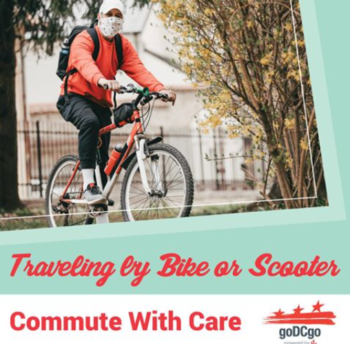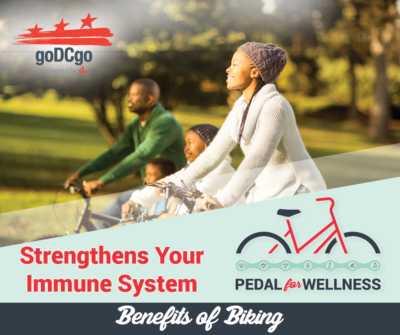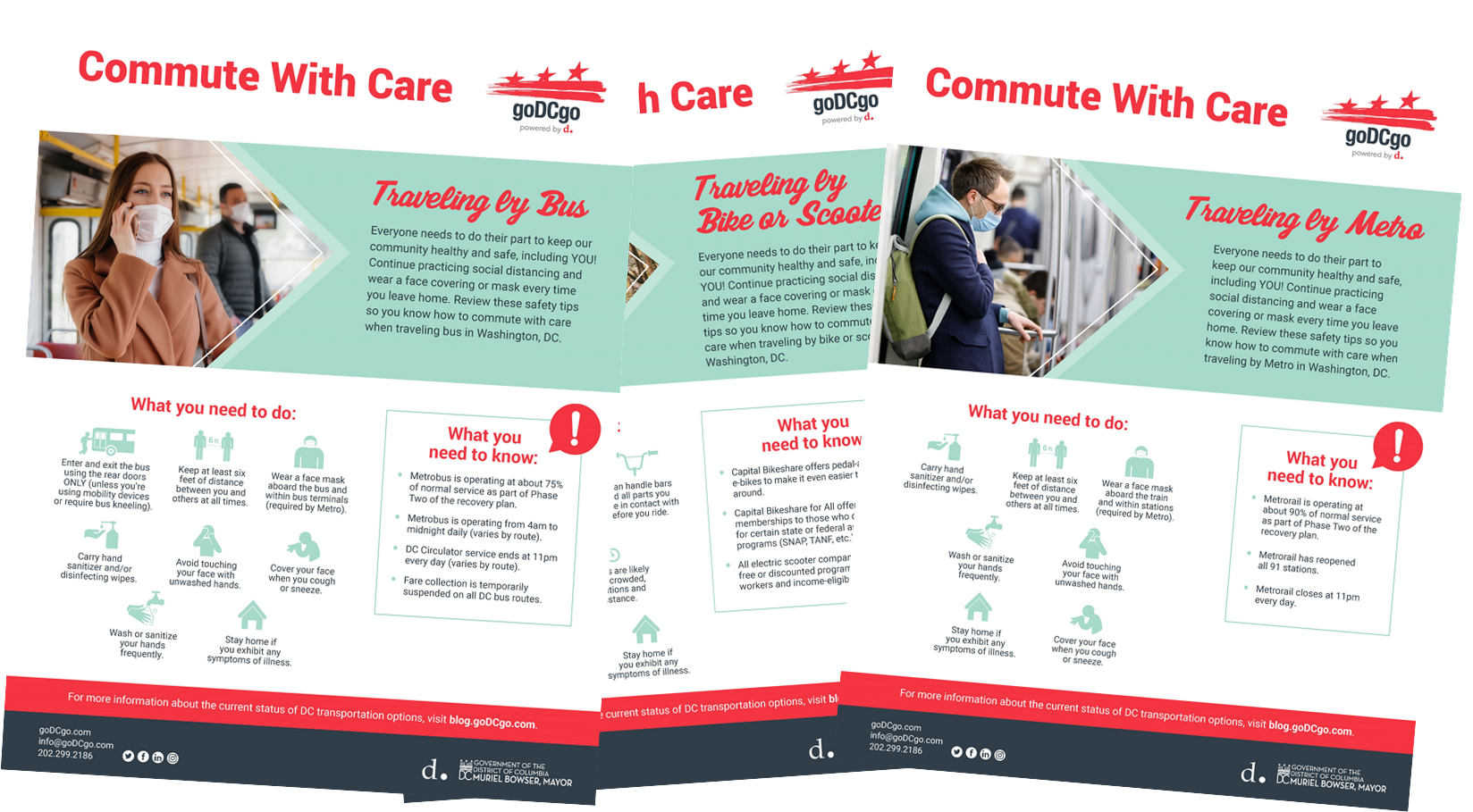In Transportation Demand Management (TDM), our goal is to reduce single occupant vehicle (SOV) travel by promoting the use of sustainable transportation: walking, biking, taking public transit, and ridesharing. In recent years, telework, the most effective trip reduction strategy, has allowed individuals to reduce their commute by a few days a week or entirely by working from home. Pre-pandemic, many businesses were not convinced telework was a feasible option for employees, nor did they account for the business continuity benefit it would bring in an emergency until we had to shelter in place due to COVID-19.
Overnight, we witnessed businesses adapting to telework, making it possible for many people to work from home. As more employees stayed home, commute levels dropped, and transit operations slowed down. Magically, SOV travel hit rock bottom and urban air quality improved. What a gift and a curse! Unfortunately, it was not just drivers that stopped traveling, but transit riders, too. With reduced service and growing safety concerns about riding public transportation, there was a need to immediately address this apprehension while also planning to mitigate the rise in SOV travel when businesses reopen their doors.
Like any new beginning, the pandemic presented an opportunity for change. Research has shown that when someone is presented with a fresh start, they are more likely to take action towards a goal. This “fresh-start effect” works because temporal landmarks act as reset buttons, allowing people to disassociate from past performance. In TDM, we use insights like these to influence travel behavior and encourage sustainable modes. goDCgo, the District Department of Transportation’s TDM program operated by Foursquare ITP, embraced this moment and adapted our work in every program.

The team immediately refocused the program’s efforts to meet people where they were at by developing an awareness campaign, Commute with Care, to address general safety concerns and inform commuters about policies and protocols in place when traveling on transit or micro-mobility equipment like bikeshare, e-bikes, and scooters. This included developing materials to raise awareness about the mayor’s direction on essential travel and how to use preventative measures when riding sustainable transportation options. All communications and public facing materials are regularly updated as DC moves through its phased reopening plan. We are also offering care packages with personal protective items such as goDCgo-branded face masks and hand sanitizer to essential businesses to provide to their employees, along with commute with care infographics to post at their worksite or on their company intranet.

In addition, we pivoted our annual bike culture campaign to a wellness-focused campaign to spread awareness of biking benefits for both physical and mental wellness. Since the stay-at-home advisory allowed physical activity, we developed useful resources like safe riding tips, trip planning assistance, and custom trail rides. With the momentum of a national biking boom on our side, we continue to promote biking as a sustainable commute option and wellness activity. This is an optimal time to encourage behavioral change while people are spending more time at home, reading more than usual, and are attuned to the many changes that living through a pandemic has presented. Sharing information that can be easily digested, put in practice now, and eventually transitioned into a lifestyle is the goal of the campaign and resources we developed and implemented amid the public health crisis. Not only did the pandemic make space for change in travel behavior, but it demanded that we rethink our services at goDCgo, too.
Employer Services
goDCgo Employer Services adapted its outreach strategies to focus on supporting employers with their reopening plans and updating their commuting program policies (telework, parking cash-out, bicycle benefit, etc.). For example, we targeted employers clustered around transit hubs to promote telework and flexible scheduling to reduce transit overcrowding. Additionally, the annual goDCgo Commuter Challenge, a friendly competition to promote the use of sustainable transportation, took a novel approach and included the option for employees to log their telework sessions. This allowed us to measure the environmental impact, promote wellness activities for employees who telework, and provide the opportunity to work with employers on improving their commuter program based on employee travel behavior during the challenge.
Residential & Hospitality Service
goDCgo Residential & Hospitality Services continued to support hotels and multi-family residential properties by sharing important transportation information and updates on sustainable options to help essential workers travel to and from work. We established new partnerships with carsharing and technology vendors to offer new commute solutions and continued to provide TDM zoning assistance to real estate developers.
School Services
goDCgo School Services adapted its outreach to focus on identifying school transportation coordinators that can help lead and encourage the use of sustainable transportation and participation in commuter benefits when schools reopen. We are supporting schools with reopening plans by hosting educational webinars on fostering a culture of sustainable commuting, supporting the development and implementation of Sustainable Transportation Plans, as well as providing ongoing support to commuters that may need to travel to school sites.
Across all programs, we shifted our in-person events to provide a virtual/online presence, hosting webinars on topics from telework policy implementation for employers, emergency preparedness planning, and safe travel options for essential workers. Many of our clients were receptive to this shift, which allowed us to organize and virtually execute three of our annual Ambassador Award ceremonies to recognize organizations who continue to be leaders in sustainable transportation.
Only time will tell if COVID-19 impacted employee commute behavior for good. As we look ahead, TDM practitioners should continue to work to renew public confidence in sustainable transportation options, support employers interested in permanent telework policies, and respond to the changing transportation landscape with effective outreach strategies, marketing, and awareness campaigns.
